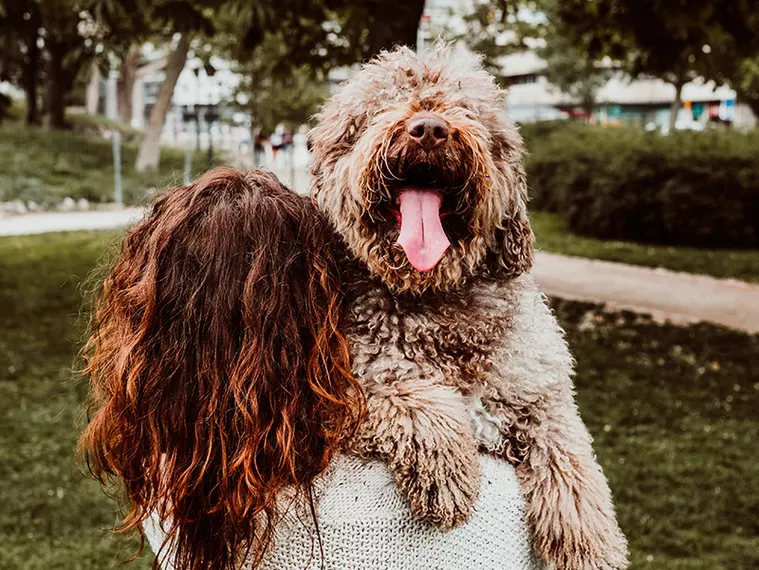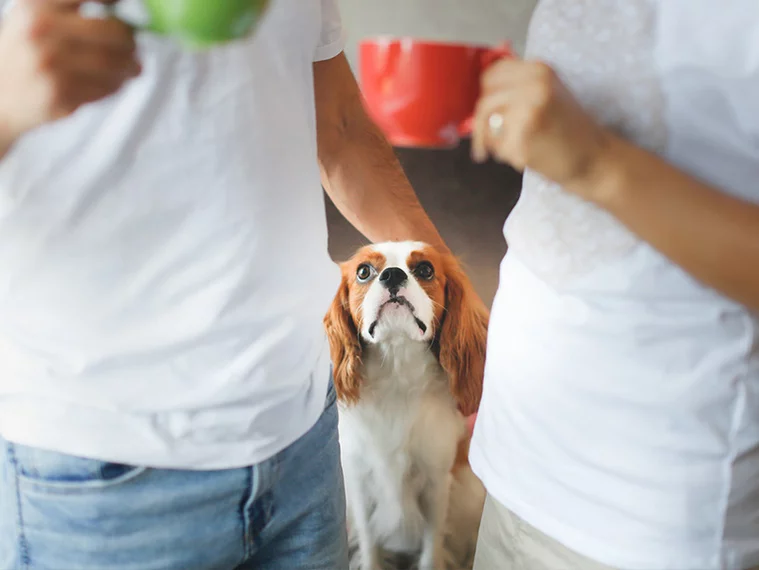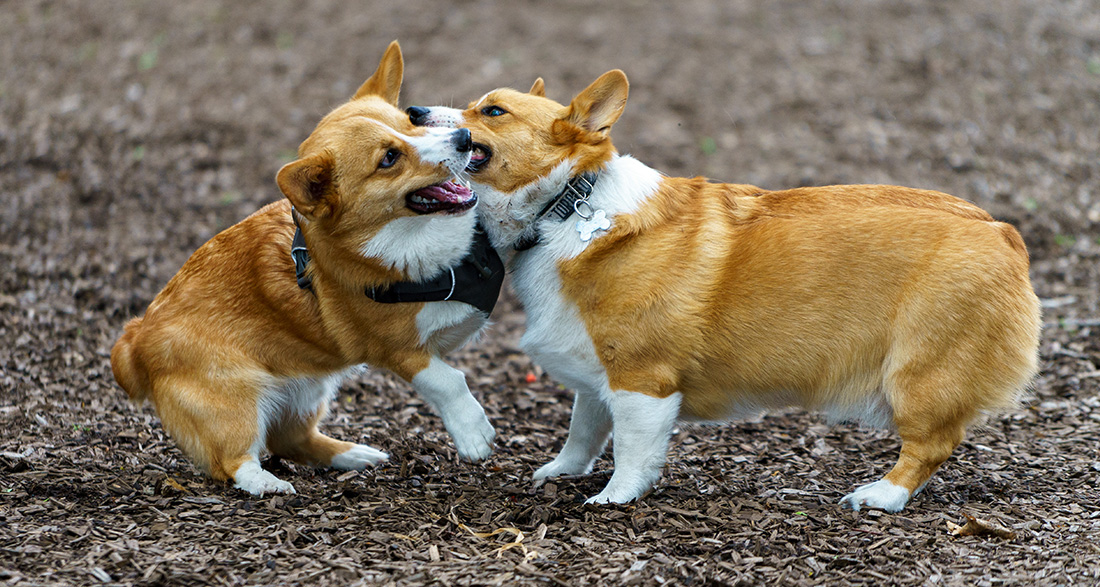Did you know that dogs can also experience jealousy? The reasons for overtly jealous behavior in dogs can be diverse. Learn here how jealousy manifests in dogs, possible triggers, and what you can do to address jealousy in a household with dogs.
Jealousy can arise, for example, when new animal companions or even a human life partner join the household, and the dog feels sidelined due to lack of attention or unclear communication. Jealousy can also emerge when it comes to a favorite toy or food. Dogs may express their jealousy by demanding excessive attention or displaying aggressive behavior towards other people and animals.
What does jealousy mean, and when does jealousy arise in dogs?
Various factors can lead to jealousy in dogs. For instance, many dogs react jealously when something important to them is taken away or when someone else gets what they desire, such as food, toys, their favorite blanket, or attention.
When a new dog or a new family member, like a life partner or a baby, enters the family, many dogs struggle to accept the new situation. New smells, sounds, daily routines, and especially the fact that the dog might not always be the top priority in fulfilling its needs can be challenging and stressful for the animal. Even a second dog in the house can become a perceived competitor for the existing “sole ruler” on four legs. From the first dog’s perspective, concerns may arise: Will the food now be shared? Who gets the food in the bowl first, and will there still be enough treats for me? A new partner or human addition to the family may mean that the dog receives less attention or not as promptly as before, leading to the development of insecurity and jealous behavior.
How to recognize jealousy in dogs?
Jealousy can manifest in various ways: some dogs bark or growl more, while others may suddenly snap at a petting hand or the second dog. Often, dogs position themselves between their primary caregiver and a newly added person in the family, trying to get undivided attention. Other dogs may be pushed aside. A jealous dog is usually stressed, and this is reflected in its body language, such as a tucked tail, increased salivation, yawning, panting with lifted lips, licking the snout, frequent shaking, or turning away of the head.

Jealous Dog – What to Do?
Jealousy among dogs:
Jealousy can arise when a second dog enters the home, sharing the owner’s attention, love, sleep and rest spaces, and, from the dog’s perspective, even the food. While dogs are generally social animals that get along well with each other, each dog has its unique character and may not like or accept a new companion immediately. In every pack, there is a hierarchy, and the animals typically establish their hierarchies within the group.
Minor conflicts between animals are part of this process when defining the hierarchy among them. Once the hierarchy is established, conflicts usually become a thing of the past.
Our advice: Only intervene in disagreements between your dogs if the situation clearly escalates. It is crucial to respect the hierarchy among your animals. In courses at your dog school, you can receive valuable tips on acknowledging and acting according to the hierarchy defined by the animals, ensuring long-term harmony in your dog group.
Territorial breeds may show more pronounced rivalry towards other dogs. In this case, it is essential to behave clearly with your dogs and not disturb the relationship between the dogs.
Our tip:
Observe your dogs to “read” their traits and characteristics. Which dog usually leads the way during a walk, rushes to the door first when it rings, or makes the most noise before getting food? Once you identify the leader of your dog group, confirm the hierarchy with small but visible signs. For example, give food to the highest-ranking dog first, leash them before going for a walk, etc.
Ignore minor jealousies between your dogs that may arise from time to time. If you need to end a dispute, use a brief and clear command to put an end to the matter and return to normal activities.
Food aggression plays a role among many dogs. Each dog should have its food bowl. By spatially separating the feeding places, you ensure relaxation. Alternatively, you can place the feeding spots in a room so that the dogs don’t make eye contact during meals. Each dog should definitely have its own sleeping and resting place.
Jealousy towards children
When a baby enters a family with a dog, the dog often needs to take a back seat. Some dogs accept the new situation quickly and see the little one as a new and precious pack member. Others may need more time to warm up to the small human. The dog must first get used to the baby, new smells, and an unfamiliar soundscape.
Show your dog that the baby hasn’t displaced its previous position in your heart. Create positive experiences together with the dog and child, such as extended walks followed by familiar play sessions with your dog. Continue to prioritize quality time with your dog, giving it attention when the newcomer is not demanding and is taking a nap. However, never leave your child alone with the dog!

Jealousy towards new life partners
It is not uncommon for dogs to react jealously to new life partners. If your dog seems unhappy in the new situation, make it clear that nothing has changed in your special relationship. Provide security for your dog, maintain beloved and long-established rituals. However, the dog should also get used to the new person in its “family pack” and ideally come to appreciate and love them.
Our tip:
Go for walks together, initiate joint playtime. In many cases, love also goes through the dog’s stomach: a treat from the hand of the new person by your side can indeed foster sympathy.
Conclusion
Whether new life partners, offspring, or another dog join your home, dogs need guidance that they seek from you. Security arises through clear communication, which includes establishing clear rules. This way, the dog knows where potential boundaries are, and jealous behavior rarely pays off.


